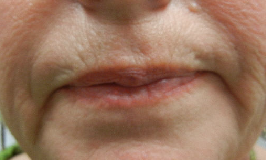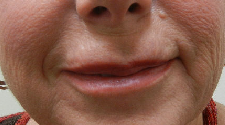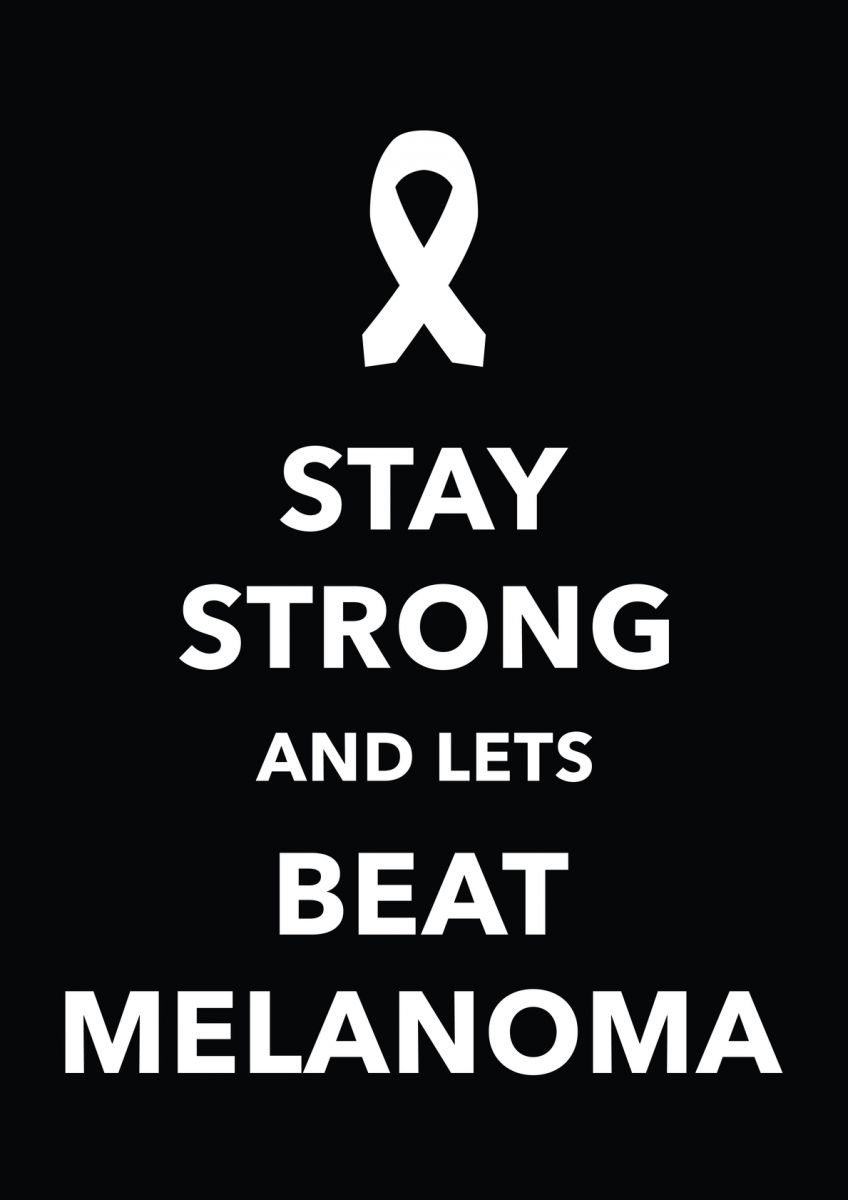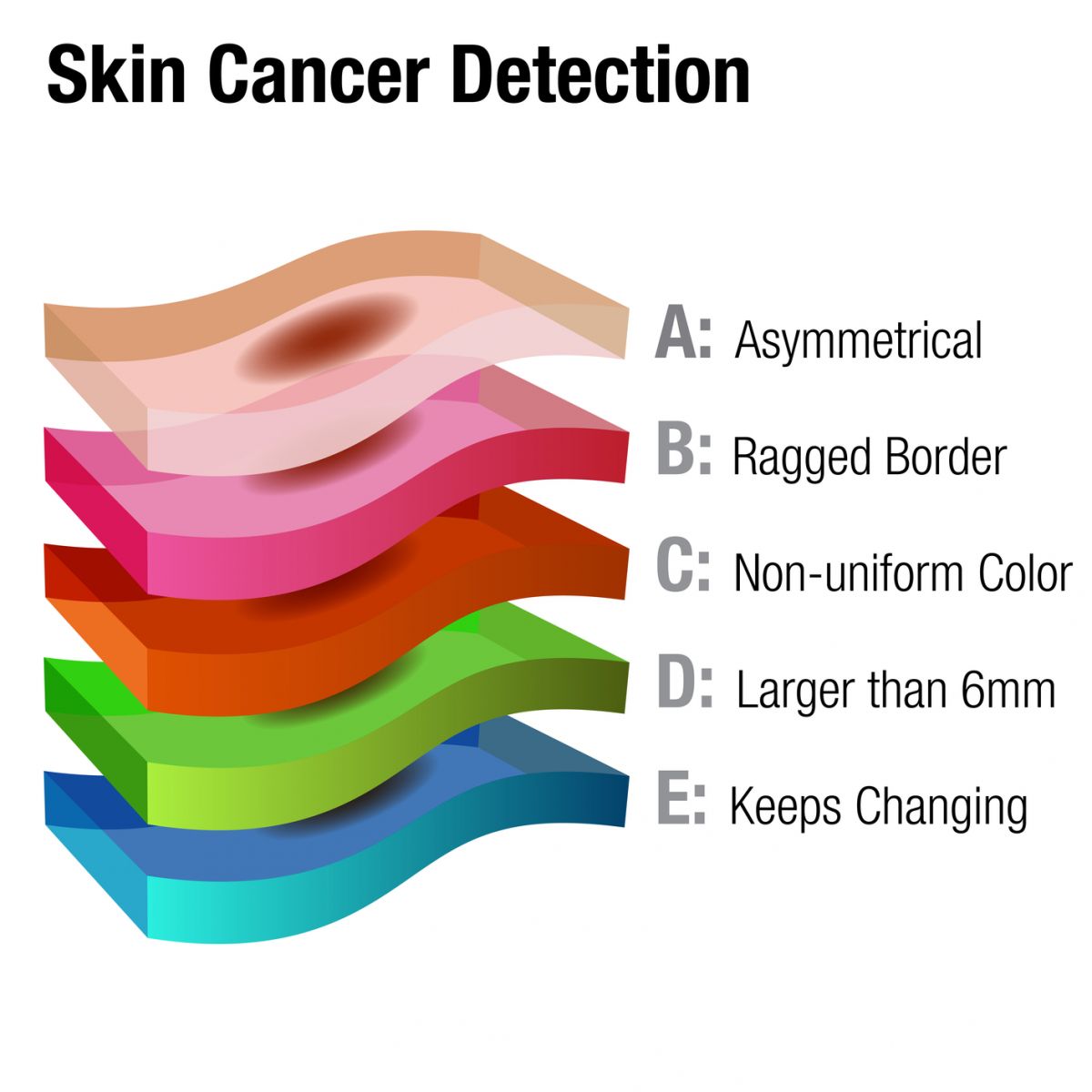Welcome to the DermacenterMD Blog
Posts for: May, 2015
Interestingly enough, the realm of cosmetic dermatology has been one of the pioneers in enhancing smiles. This can be done in several ways depending on what is desired.
One of the most dramatic methods to improve the smile is to change the downward turning corners of the mouth most get as aging sets in. This down turn in the corners of the mouth can actually make others see us as grumpy, sour or unhappy, when in reality we are not. To get others to see us for who we are, Dr. Moore can inject a filler substance into the skin near the corners of the mouth. This can reduce the shadow in this area and give a more relaxed and neutral or positive appearance. This technique is often described as the method of turning a frown upside down.
Botulinum toxin protein can also be injected into the muscles around the mouth or some which pull down on the corners of the mouth. This can also help relax the corners allowing the lips to have a more happy appearance.
The long term application of topical retinoids in cream form, such as Retin A, can also improve the wrinkles and roughness of the skin around the mouth. This improvement can yield a healthier smile.
Laser therapy with our top-of-the line advanced system form Sciton can also improve texture, color, wrinkles and lines of the skin giving a more youthful appearance. This may be combined with some of the items listed above to get more significant improvement.
Dr. Moore can find the right method to improve your smile so others around you see you as the wonderful and positive person that you are.
If you interested in improving your smile today, call Dr. Moore at 574-522-0265 to set up a consultation to determine which methods will give you a happy, healthy and beautiful smile.
See results below of what injectable fillers can do to improve a smile:
Before:

After:

Skin cancer is the most common cancer of all cancers today. It is estimated that 1 in 3 Americans will have a skin cancer during their life time. Over 3 million skin cancers are diagnosed each year. The harmful rays of the sun contribute to the development of rough scaling precancer spots termed actinic keratosis, basal cell carcinomas (BCC), squamous cell carcinomas (SCC), and the deadly melanoma cancer. Each of these growths can lead to bigger problems and require treatment. Some cancers can even become life threatening. Skin cancer prevention is a major reason to wear sunscreen.
Which sunscreen should I buy?
The important point here is to buy a sunscreen you will wear. This means the one which you tolerate best. There are now sunscreens available in lotions, creams, sprays and powders (of which many active people who sweat prefer the powder). Find the right product for your skin. Then you need to pick the right ingredients. All sunscreens block UV-B the rays, which cause sunburn, but not all block UV-A rays. In fact, only a few ingredients block UV-A rays and provide true broad spectrum coverage. The strongest UV-A blockers are thought to be Zinc Oxide, Titanium Dioxide, Parsol 1789 (Avobenzone) and Meroxyl. Of these, Zinc Oxide and Titanium Dioxide are labeled as physical blockers which bounce the sun off the skin rather than absorb it, so many clinicians prefer these.
When do I need sunscreen?
The most important time to wear sunscreen is when the sun is intense. This is mostly between 10 am and 2 pm. However, a little known fact is that up to 85% of our sun exposure comes from incidental sun exposure. This means the trips to the grocery store, work, etc. are the times we get most of our sun damage over a life time. Though most of us don’t do this, we should wear sunscreen on a daily basis. This would reduce dramatically our cumulative sun damage.
So what SPF do I need?
This is better understood if you learn about SPF. So please take a minute to read so you make the right decision. SPF stands for sun protective factor. More simply, it is a laboratory measure indicating a person under lab conditions would take longer to burn as represented by the rating on the bottle. An SPF of 15 used by someone who normally burns in 10 minutes at the noon time sun would take 15 times as long to burn (150 minutes) if using the sunscreen properly. The SPF also dictates how much of the UV is blocked. The amount of UV blocked for SPF 15 is 93%, for SPF 30 is 96.7%, and SPF 45 is 98.5%. So wearing an SPF of 60 does not provide double the protection of SPF 30 but rather takes the SPF number from 96.7% closer to the 100% mark. Thus many researchers indicate an SPF higher than 30 does not yield much more protection. So use an SPF 30 or higher.

Dermatologists are the most highly trained skin specialists in all of medicine.
Board certified dermatologist often have a four year undergraduate degree, then they go through four years of medical school and finally complete a 4 year residency in dermatology (most have completed 12 years of school). The board certification process entails passing a rigorous examination as well as maintaining appropriate continuing education credits.
The dermatology residency program is one of the most competitive positions in the medical field, therefore a dermatologist is often one of the top students in the medical school academically.
The residency training to become a dermatologist is rigorous and challenging. It consists of hands on time in the clinic and subspecialty clinics for dermatology, academic lectures, case presentations, research, skin surgery rotations and quite a bit of study time (as there are over 2,800 skin conditions).
Dermatologists are trained in most every aspect of the skin, hair and nails.
Requirements for mastery of topics include interpretation and diagnosis of skin diseases, the pathology of skin diseases and also diagnosis and treatment of skin cancer. Some dermatologists attain advanced training and certification in the most advanced treatment modality for skin cancer, termed Mohs Micrographic Surgery. This advanced technique is used almost exclusively by dermatologists because it requires in-depth knowledge in pathology of the skin as well as advanced skin surgical training.
No other area of medicine is as highly trained in diagnosis and treatment of skin problems or skin cancer.
At DermacenterMD we are proud to offer the services of a board certified dermatologist, Dr. Roger Moore, who is a fellow of the American Academy of Dermatology as well as the American Society of Mohs Surgery. Dr. Moore is the first to provide Mohs Micrographic Surgery to Elkhart County and continues to be a leader in cosmetic, medical and surgical dermatology. In addition, he has been volunteer faculty at Indiana University School of Medicine and hosted dermatology and family practice residents for lectures and rotations. He is also the founder and president of Dermwise, Inc., a company designed to provide dermatology education to those who are not dermatologists.
If you would like to schedule an appointment with Dr. Moore please give our office a call at 574-522-0265 today.

Today is a special day to remind us just how important it is that we protect our skin from the sun. Today is Melanoma Monday, and the aim of this day is to raise awareness of the most deadly form of skin cancer. The entire month of May is National Skin Cancer Awareness Month and it is important to understand that everyone, despite age, race or skin type is at risk for skin cancer. In fact, 1 in 5 Americans will have skin cancer at some point in their life. Skin cancer is common and it could happen to you. However, there are ways to prevent skin cancer and reduce your risk. Here are 5 different ways you can protect your skin from developing skin cancer:
1. Wear Sunscreen-
This is perhaps the most important of all the ways to prevent skin cancer. You should be wearing sunscreen 365 days a year! The sun beats down on on us each and every day, even if we don't see it. You should be sure to apply sunscreen whenever you go out. When selecting your daily sunscreen, be sure to get an SPF of at least 30 and make sure it contains at least one of these ingredients: titanium dioxide, zinc oxide or parsol 1789 (avobenzone). Also, it is important to apply enough sunscreen when you go out. If you are going out for an extended period of time, you should be applying 2 tablespoons of sunscreen every 2 hours.
2. Avoid Sun-
If you forget your sunscreen, you will want to avoid the sun as much as possible. Wearing a hat and long sleeves and long pants will also help to reduce your sun exposure. It is important to know that the sun is hottest between the hours of 10 a.m. and 4 p.m., so you should seek shade whenever possible, especially between those hours.
3. Check your skin monthly-
Skin cancer is treated most easily when it is caught early. If you set aside time every month to check your skin, you will know if something suspicious shows up. Checking your skin monthly allows you to catching anything unusual early and then get in to see your dermatologist as soon as possible. When checking your own skin, don't forget to look in hard to see places like your scalp, back, bottoms of your feet and between your toes. You may ask someone who cares about you to help you in this process to ensure that every inch is checked.
4. Know what to look for-
When you check your skin it is important that you know the signs of skin cancer. The most important thing to remember is that if you have a new or changing mole or lesion, you should have it checked. The following diagram contains the ABCDE's of melanoma:

5. Annual Full-Body Skin Exam-
Last but certainly not least, it is essential to have your skin checked by a skin professional at least once a year. Your dermatologist knows what to look for. In fact, Dr. Moore is a skin cancer expert. He will look you over head to toe to ensure that nothing is suspicious. If he does find something suspicious, he will most likely perform a procedure known as a biopsy to test the site to make sure it does not contain skin cancer. If he does find skin cancer, you can rest easy knowing you are in good hands. Here at DermacenterMD, we offer to most comprehensive and state of the art treatments for skin cancer.
If you or someone you know is concerned about skin cancer, do not hesitate to call our office and set up your skin cancer screening exam. It could save your life, or the life of someone you love!
Call today! 574-522-0265. No referral is necessary.
It can be so tempting when the weather is finally beautiful and the sun is out in full strength after a long hard winter to spend as much time outside as possible. You just want to be outside all the time, and there is nothing wrong with that. However, many people do not fully understand that the sun can be very detrimental to your health. The rays of the sun can damage your skin and cause wrinkles, pigmentation and even skin cancer. Skin cancer is the most common type of cancer diagnosed in the U.S. today. It can even be deadly. It is vital to your health and the health of your family that you take the proper precautions when you will be exposed to the sun.
First and foremost, the best line of defense if you are going to be in the sun is wearing sunscreen. It is recommended that you use a sunscreen of at least 30 spf. This will effectively block out 97% of UVB rays. It is best to apply sunscreen about a half hour before you go out into the sun and then again right before you go out. This will provide you with the best protection possible. Another important aspect to remember is to choose the correct ingredients in your sunscreen. You will want to select a sunscreen that contains one of the following ingredients: titanium dioxide, zinc oxide or parsol 1789 (avobenzone). These ingredients will ensure that you are protected against UVB and UVA rays, which can cause damage to the skin.
Another way to protect yourself from the sun is to avoid it all together. Stay out of the sun between the hours of 10 a.m. and 4 p.m. when the sun is at its hottest. Seek shade whenever possible and wear protective clothing. Melanoma is a serious form of cancer that can be deadly. You increase your risk of skin cancer substantially when you expose yourself to the sun without protection. So remember next time you are heading out for a fun day in the sun, that it is imperative to protect yourself from the damaging rays you will be exposed to. I dare you to avoid the sun and take the proper precautions if you will be exposed. It could save your life.
Archive:
Tags
- dry skin (2)
- moisturizer (1)
- sensitive skin (3)
- PA (2)
- Skincare (2)
- skin cancer (29)
- cancer (6)
- facts (1)
- skin (19)
- dermatology (22)
- skin care (19)
- cosmetic (2)
- wrinkles (1)
- Botox (4)
- Dysport (3)
- sleep (1)
- look good (1)
- daily routine (1)
- healthy lifestyle (1)
- doctor (2)
- patient (1)
- sun protection (5)
- sunscreen (14)
- aging dermatology (1)
- providers (1)
- tanning (2)
- sun (6)
- UVA rays (2)
- UVB rays (2)
- melanoma (10)
- Acne (2)
- Treatment (2)
- sunscren (1)
- sun exposure (5)
- Melanoma Monday (2)
- Skin Cancer Awareness Month (1)
- education (2)
- skin cancer specialist (1)
- basal cell carcinoma (1)
- squamous cell carcinoma (1)
- ingredients (2)
- improve your smile (1)
- cosmetics (1)
- laser (1)
- fillers (2)
- sunburn (3)
- avoid the sun (1)
- hat (1)
- sun clothing (1)
- SPF (1)
- Rosacea (3)
- NP (1)
- Nurse Practitioner (1)
- mid-level provider (1)
- physician (1)
- dermatologist (6)
- cosmetic dermatology (4)
- anti-aging (2)
- youthful looks (1)
- Eczema (2)
- rash (2)
- itch (1)
- the rash that itches (1)
- reduce itch (1)
- itching (1)
- getting along with others (1)
- basal cell (2)
- squamous cell (2)
- detection (1)
- Mohs surgery (2)
- photoaging (1)
- Inspiring (1)
- word of the day (1)
- inspiration (3)
- uplifting (1)
- protection (4)
- lips (1)
- reduce wrinkles (1)
- look younger (1)
- encouragement (1)
- never give up (1)
- you can do it (1)
- medical school (1)
- dreams (1)
- brown spots (1)
- moles (2)
- liver spots (1)
- age spots (1)
- Abe Lincoln (1)
- life lessons (1)
- lip cancer (1)
- health (12)
- motivation (1)
- work (1)
- people (2)
- home life (1)
- lifestyle (1)
- ABCDEs of Melanoma (1)
- mole (1)
- skin check (2)
- skin facts (2)
- odd (1)
- fun (1)
- interesting (1)
- lung cancer (1)
- disease (1)
- Christmas (2)
- gifts (1)
- sun burn (1)
- winter skin tips (1)
- itchy skin (1)
- winter skin (1)
- myths (1)
- myth busted (1)
- skin protection (1)
- sunscreen safety (1)
- specialist (1)
- red skin (1)
- irritation (1)
- feel good (1)
- helping (1)
- help (1)
- helping others (1)
- treatment options (1)
- skin health (9)
- Vitamin D (2)
- tanning beds (1)
- skin health. dermatology (1)
- sunshine (1)
- awareness (1)
- prevention (1)
- sun damage (3)
- connections (1)
- working together (1)
- health care (1)
- biotin (1)
- medical (1)
- aging (1)
- elkhart (1)
- Roger Moore (1)
- check (1)
- skin type (1)
- skin cancer prevention (1)
- gift guide (1)
- Christmas gift guide (1)
- Dr. Roger Moore (1)
- holidays (1)
- family history (1)
